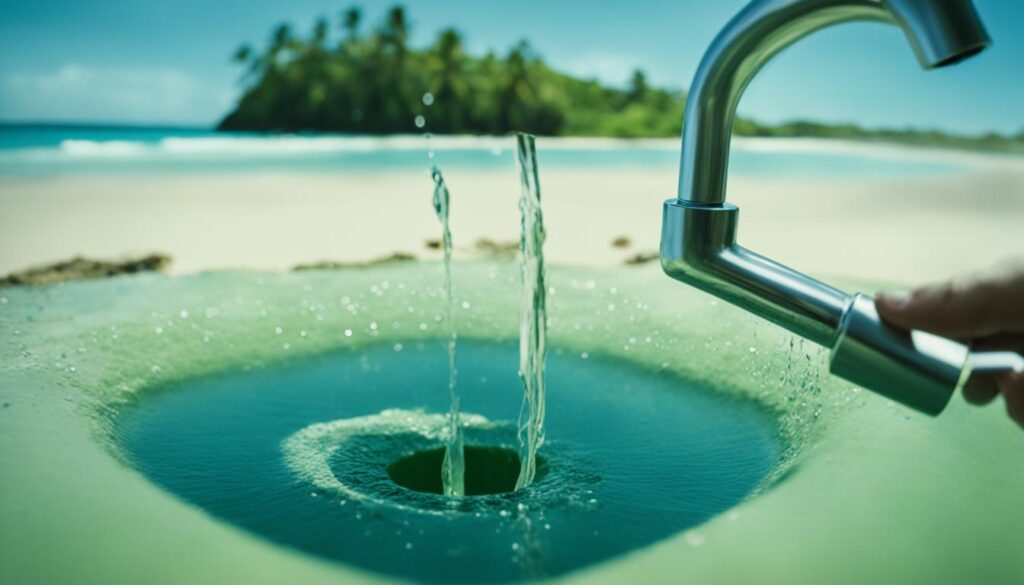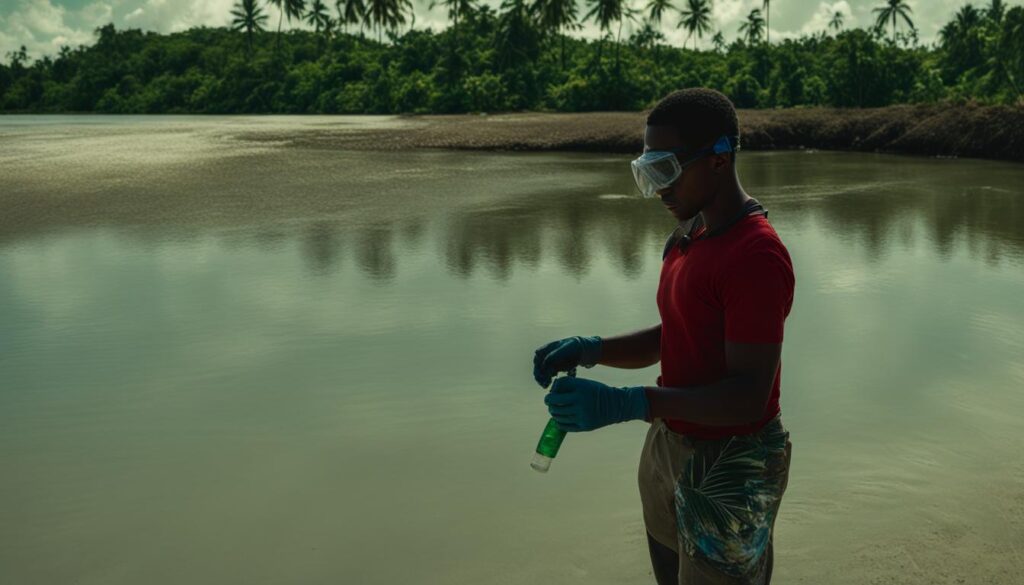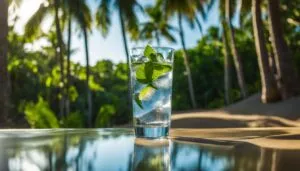Welcome to JJ Studio Photo, the premier choice for wedding photography in Punta Cana. With over 15 years of experience capturing beautiful moments, we specialize in wedding photography, engagement sessions, couple photo sessions, and family sessions. Our team of talented photographers is dedicated to providing you with the highest quality images that perfectly capture the love, joy, and happiness of your special day.
At JJ Studio Photo, we understand the importance of your wedding day and the memories that will last a lifetime. That is why we strive to create stunning images that tell your unique love story. Whether you dream of a beach wedding, a tropical garden ceremony, or an elegant resort celebration, our experienced photographers have the expertise and creative vision to bring your vision to life.
We are proud to call Punta Cana our home, and we have had the pleasure of working at some of the most breathtaking locations in the Dominican Republic. Our knowledge of the local area, coupled with our passion for photography, allows us to capture not only beautiful images but also the essence of the Dominican culture and the natural beauty of the surroundings.
For more information and to view our portfolio, please visit our website jjstudiophoto.com. Request a free appointment today and let us be a part of your special day. Contact us at âï¸+1 849 387 9900.
Key Takeaways:
- Choose JJ Studio Photo for the best team of wedding photographers in Punta Cana.
- Specializing in wedding photography, engagement sessions, couple photo sessions, and family sessions.
- Over 15 years of experience capturing beautiful moments.
- Passionate about providing high-quality images that tell your love story.
- Located in Punta Cana, with a deep understanding of the local culture and scenic beauty.
Tap Water Quality in the Dominican Republic
The tap water quality in the Dominican Republic can vary depending on the location. Some areas have well-maintained water treatment systems and meet international standards, resulting in relatively safe tap water. However, there have been instances of water contamination in certain regions, leading to health concerns and the potential for waterborne diseases. It is recommended for visitors to do thorough research on the specific area they plan to visit and consider alternative sources of drinking water.
If you are planning a trip to the Dominican Republic, it is important to be aware of the potential variations in tap water quality. While some areas may have safe tap water that meets international standards, other regions may have issues with water contamination. These contaminants can pose health risks and increase the chances of waterborne diseases.
To ensure your safety, it is advisable to do thorough research on the tap water quality in the specific area you plan to visit. Look for reliable sources of information such as government reports or travel advisories. These resources can provide valuable insights into the water quality situation and any ongoing issues with water contamination.
Additionally, it is also recommended to consider alternative sources of drinking water, especially if you have any concerns about tap water quality. Bottled water is widely available in the Dominican Republic and can be a safer option. Look for reputable brands and ensure that the bottle seal is intact before consuming the water.
If you prefer using tap water, you can also invest in water filtration systems. Portable filters or in-room filters provided by accommodations can help remove impurities and ensure safer drinking water. Boiling tap water before consumption is another effective method of water treatment that can kill bacteria and parasites.

By taking these precautions and considering alternative sources of drinking water, you can reduce the risk of waterborne diseases and enjoy a healthier stay in the Dominican Republic.
Precautions for Drinking Tap Water in the Dominican Republic
To ensure your safety when consuming tap water in the Dominican Republic, it is crucial to follow safe drinking water guidelines. By taking these precautions, you can protect yourself from potential health risks and enjoy a worry-free stay.
Safe Drinking Water Guidelines
Here are some important guidelines to follow:
- Use water filtration systems: Investing in a reliable water filtration system can help remove impurities and ensure that the water you drink is safe. Consider portable filters for travel or inquire if your accommodation provides in-room filtration systems.
- Boil water before consumption: If you are unsure about the quality of tap water, it is recommended to boil it before drinking or using it for brushing your teeth. Boiling the water kills harmful bacteria and parasites.
- Opt for bottled water: Using bottled water for drinking and brushing your teeth is a convenient way to ensure water safety. Be sure to check the seal and expiration date before consuming bottled water.
Implementing these precautions will help minimize the risk of waterborne diseases and ensure a healthy experience during your trip to the Dominican Republic.
Water Testing and Treatment in the Dominican Republic
The Dominican Republic is committed to ensuring the safety of its drinking water through rigorous testing and treatment processes. Regular water quality tests are conducted to monitor and identify any potential issues that may arise. These tests help to maintain high standards and ensure that the water is safe for consumption.
Water treatment facilities are also in place to remove contaminants and purify the water. These facilities use advanced filtration and disinfection methods to ensure that the water meets the necessary quality standards. This includes the removal of bacteria, viruses, and other harmful substances that may be present in the water.
While these efforts are in place to provide residents and visitors with safe drinking water, it is still recommended to exercise caution and use alternative sources of drinking water. This is especially important in certain areas where the quality of tap water may still be a concern.
In some cases, even though the water has undergone testing and treatment, factors such as aging infrastructure or external factors like natural disasters can impact the quality of the water. By using alternative sources of drinking water, such as bottled water or water from reliable filtration systems, you can minimize the risk of contamination and ensure your safety.
Remember, your health and well-being are a priority. It is always better to be cautious and take extra steps to ensure the quality of the water you are consuming, particularly when you are in an unfamiliar environment.
The Importance of Water Testing and Treatment
«Water testing and treatment are vital to protect public health and prevent the spread of waterborne diseases. By implementing these measures, the Dominican Republic aims to provide safe drinking water to its residents and visitors.»
Water testing and treatment play a crucial role in ensuring the safety of drinking water. Through regular testing, any potential issues or contaminants can be detected early on, allowing for prompt action to be taken. Treatment processes, such as filtration and disinfection, are then implemented to eliminate harmful elements from the water.
This commitment to water testing and treatment is a testament to the Dominican Republic’s dedication to providing safe drinking water. However, it is important to remain vigilant and make informed choices regarding your water consumption while visiting the country.
The Role of Water Testing in Maintaining Water Quality
Water testing is a vital part of maintaining water quality in the Dominican Republic. Regular testing helps to identify any potential issues that may compromise the safety of the water supply. Through comprehensive testing, the authorities can ensure that the water meets the necessary standards and is safe for consumption.
Some of the parameters tested during water testing include:
- pH level
- Presence of bacteria and viruses
- Chemical contaminants
- Turbidity
- Disinfection byproducts
By conducting these tests, any abnormalities or potential risks can be identified and addressed promptly. This helps to protect the public health and prevent the spread of waterborne diseases.
The Water Treatment Process in the Dominican Republic
Water treatment is a step-by-step process that ensures the removal of contaminants and the production of safe drinking water. In the Dominican Republic, the following steps are typically involved in the water treatment process:
- Coagulation and flocculation: Chemicals are added to the water to help particles clump together, making them easier to remove.
- Sedimentation: The clumped particles settle at the bottom of a basin, allowing for their removal.
- Filtration: The water passes through filters that remove any remaining particles and impurities.
- Disinfection: Chlorine or other disinfectants are added to the water to kill any remaining bacteria and viruses.
- pH adjustment: The pH of the water is adjusted to meet the necessary standards for safe consumption.
- Storage and distribution: The treated water is then stored and distributed to consumers through a network of pipes and reservoirs.
Each step in the water treatment process is carefully designed to ensure the removal of contaminants and the production of safe drinking water. By following these processes, the Dominican Republic aims to provide residents and visitors with water that meets the necessary quality standards.
| Step | Description |
|---|---|
| Coagulation and flocculation | Chemicals are added to the water to help particles clump together, making them easier to remove. |
| Sedimentation | The clumped particles settle at the bottom of a basin, allowing for their removal. |
| Filtration | The water passes through filters that remove any remaining particles and impurities. |
| Disinfection | Chlorine or other disinfectants are added to the water to kill any remaining bacteria and viruses. |
| pH adjustment | The pH of the water is adjusted to meet the necessary standards for safe consumption. |
| Storage and distribution | The treated water is then stored and distributed to consumers through a network of pipes and reservoirs. |
By implementing these water treatment processes, the Dominican Republic aims to provide safe drinking water and ensure the well-being of its residents and visitors.

Visit our website jjstudiophoto.com to learn more about our services and to request a free appointment. Our team of experts is available to assist you in capturing beautiful moments.
Request a Free Appointment âï¸ã+1 849 387 9900ã.
Alternative Sources of Drinking Water in the Dominican Republic
To ensure the safety of drinking water in the Dominican Republic, it is advisable for visitors to consider alternative sources of drinking water. This can include using water filtration systems or opting for bottled water.
Water filtration systems, such as portable filters or in-room filters provided by accommodations, can effectively remove impurities and contaminants from tap water, making it safe for consumption. These systems are convenient and reliable, ensuring a constant supply of clean drinking water during your stay in the Dominican Republic.
Bottled water is widely available throughout the Dominican Republic and can be purchased from reputable stores or establishments. It provides a convenient and readily accessible source of safe drinking water. However, it is important to verify the seal and expiration date before consuming bottled water to ensure its quality and freshness.
Tip: To find the nearest store or establishment selling bottled water, visit our website jjstudiophoto.com or call us at +1 849 387 9900 to request a free appointment for more information and guidance.
By utilizing water filtration systems and opting for bottled water, you can have peace of mind knowing that you are consuming safe and clean drinking water during your time in the Dominican Republic.
Health Concerns Related to Drinking Water in the Dominican Republic
When it comes to drinking water in the Dominican Republic, it’s important to be aware of the potential health risks associated with waterborne diseases. Consuming contaminated water can lead to various illnesses, including diarrhea, cholera, and typhoid fever. To safeguard your health during your visit to the Dominican Republic, it is imperative to take necessary precautions and protect yourself against waterborne diseases.
Waterborne Diseases: Waterborne diseases are caused by the ingestion of water that is contaminated by harmful bacteria, viruses, or parasites. In the Dominican Republic, instances of waterborne diseases have been reported, emphasizing the need for caution when it comes to drinking water.
Cholera is a highly contagious diarrheal disease that can be contracted from consuming water contaminated with the Vibrio cholerae bacterium. Symptoms can range from mild to severe and can lead to dehydration or, in severe cases, death if left untreated.
Typhoid fever is another waterborne disease caused by the Salmonella Typhi bacteria. It is typically transmitted through contaminated water or food and can cause symptoms such as high fever, stomach pain, and diarrhea. Without proper treatment, typhoid fever can lead to serious complications and even death.
Diarrhea is a common symptom of various waterborne illnesses and can be caused by multiple factors, including the consumption of contaminated water. It is characterized by loose or watery stools, abdominal cramps, and dehydration. While most cases of diarrhea are mild and resolve on their own, severe or prolonged diarrhea can lead to complications.
Given the potential risks associated with waterborne diseases, it is crucial to take necessary measures to protect yourself during your trip to the Dominican Republic. By implementing certain precautions, you can minimize the likelihood of contracting waterborne illnesses and ensure a safe and enjoyable experience.
Quote: «The safety of drinking water should never be taken for granted. It’s essential to prioritize your health and well-being by being cautious about the water you consume during your visit to the Dominican Republic.» – Dr. Maria Ramirez, Public Health Expert
Here are some tips to protect yourself from waterborne diseases:
- Drink Bottled Water: Opt for sealed, commercially bottled water from reputable brands. Check the seal and expiration date before consuming.
- Water Filtration Systems: Consider using water filtration systems or purifiers to ensure the removal of contaminants. Portable filters or in-room filters provided by accommodations can be good options.
- Avoid Ice and Uncooked Foods: As an additional precaution, avoid using ice cubes made from tap water and limit consumption of raw or uncooked foods that may have been washed in tap water.
- Practice Good Hygiene: Wash your hands regularly with soap and clean water, especially before eating or preparing food, and after using the restroom.
- Seek Medical Attention: If you experience severe symptoms of a waterborne illness, seek medical attention promptly. Prompt diagnosis and treatment are crucial for a swift recovery.
Visiting a Water Treatment Facility
To gain more insights into the efforts made to ensure safe drinking water, consider visiting a water treatment facility in the Dominican Republic. These facilities play a vital role in monitoring and maintaining the quality of water and can provide valuable information about the measures taken to protect public health.
Remember, being proactive and informed about the potential health risks associated with drinking water in the Dominican Republic is the key to a safe and enjoyable trip. By following the recommended precautions and staying vigilant, you can mitigate the risks of waterborne diseases and focus on exploring the beauty of the country.
| Waterborne Diseases | Symptoms | Prevention |
|---|---|---|
| Cholera | Watery diarrhea, vomiting, dehydration | – Drink bottled water – Use water filtration systems – Practice good hygiene |
| Typhoid Fever | High fever, stomach pain, diarrhea | – Avoid tap water – Drink bottled water – Cook food thoroughly |
| Diarrhea | Loose or watery stools, abdominal cramps, dehydration | – Drink bottled water – Practice good hygiene – Avoid raw or uncooked foods |
Travelers' Experiences with Drinking Water in the Dominican Republic
When it comes to drinking water in the Dominican Republic, the experiences of travelers can vary. While some have had no issues and found the tap water to be safe, others have encountered problems with contamination and have chosen alternative sources of drinking water. These firsthand accounts provide valuable insights for visitors who are planning their trip to the Dominican Republic.
Some travelers have reported that the tap water in certain areas of the Dominican Republic meets international standards and is considered safe to drink. They have had no concerns about waterborne diseases or contamination and have consumed tap water without any issues.
«During my stay in Punta Cana, I had no problems with the tap water. It tasted fine, and I didn’t experience any health issues. I had full confidence in drinking it.»
However, other travelers have shared cautionary tales about the tap water quality in the Dominican Republic. They have encountered instances of contamination, leading to health concerns and waterborne diseases. As a result, they have chosen to rely on alternative sources of drinking water.
«I got sick after drinking tap water in Santo Domingo. I had severe diarrhea and had to seek medical attention. Since then, I have been strictly using bottled water during my travels in the Dominican Republic.»
It is important for visitors to consider these travelers’ experiences and make informed decisions about their own water consumption. Factors such as the location, condition of the water treatment systems, and personal sensitivities to water quality may influence individual experiences.
While some travelers have found the tap water in the Dominican Republic to be safe, it is advisable to take precautions to ensure your health and well-being. Using alternative sources of drinking water, such as bottled water or filtered water, is a recommended approach to minimize the potential risks associated with tap water.
Remember that everyone’s experience may vary, and it is crucial to prioritize your health and safety while enjoying your time in the Dominican Republic.
Government Efforts to Improve Water Safety in the Dominican Republic
The government of the Dominican Republic is dedicated to enhancing water safety and has implemented several initiatives to address this crucial issue. These efforts include the establishment of comprehensive regulations and standards for water treatment and testing, aimed at ensuring the provision of clean and safe drinking water to residents and visitors alike.
In addition to government regulations, there are ongoing water safety initiatives focusing on both infrastructure improvements and public education. These initiatives aim to enhance the country’s water treatment capabilities and raise awareness about safe drinking water practices.
Quote: Water Safety Initiatives
«We are committed to safeguarding the health and well-being of our citizens and visitors through our water safety initiatives. By prioritizing the implementation of stricter regulations, upgrading water treatment facilities, and increasing public awareness, we aim to provide clean and safe drinking water for all.»
Through public education campaigns, individuals are informed about the importance of safe drinking water practices, such as using water filtration systems and consuming bottled water. These campaigns also emphasize the significance of proper hygiene and handwashing to prevent waterborne diseases.
The government’s ongoing efforts and commitment to improving water safety reflect their dedication to ensuring the health and well-being of the population and creating a positive visitor experience. By advocating for and implementing stringent regulations, the government aims to bolster confidence in the quality of drinking water in the Dominican Republic.
| Government Efforts to Improve Water Safety | Key Features |
|---|---|
| Regulations and Standards | – Establishing comprehensive regulations for water treatment – Implementing standards for water testing – Ensuring adherence to international guidelines |
| Infrastructure Improvements | – Upgrading water treatment facilities – Investing in advanced water filtration systems – Enhancing water distribution networks |
| Public Education Campaigns | – Raising awareness about safe drinking water practices – Promoting the use of water filtration systems – Emphasizing proper hygiene and handwashing |
It is important for visitors to acknowledge the government’s efforts and follow recommended guidelines for ensuring their own water safety during their stay in the Dominican Republic. By staying informed and adopting appropriate precautions, visitors can enjoy their time on the island while maintaining their health and well-being.
If you are planning a trip to the Dominican Republic and have any concerns or questions about water safety, please feel free to visit our website jjstudiophoto.com for more information or contact us directly to request a free appointment at +1 849 387 9900.
Recommendations for Visitors to the Dominican Republic
When visiting the Dominican Republic, it’s crucial to prioritize your health and safety, especially when it comes to drinking water. By following these water safety tips and safe drinking water guidelines, you can minimize the risk of water-related health issues and enjoy your trip to the fullest.
1. Use Alternative Sources of Water
Instead of relying solely on tap water, consider using alternative sources such as bottled water or filtered water. Bottled water is widely available in the Dominican Republic and can be purchased from reputable stores or establishments. Verify the seal and expiration date before consuming bottled water to ensure its quality. If you prefer filtered water, portable filters or in-room filters provided by accommodations can be a convenient option.
2. Practice Good Hygiene
Maintaining good hygiene is essential in protecting yourself from waterborne diseases. Make sure to wash your hands regularly with soap and clean water, especially before eating or preparing food, and after using the restroom. Proper hand hygiene can significantly reduce the risk of illness, ensuring a safe and enjoyable trip.
3. Consider Boiling Water
If you’re in an area where tap water safety is a concern, boiling water before consumption can be an effective method to kill harmful microorganisms. Bring the water to a rolling boil for at least one minute and allow it to cool before drinking or using it for brushing your teeth.
4. Stay Informed
Stay updated on the latest information regarding water safety in the Dominican Republic. Research the specific area you plan to visit and be aware of any potential issues or advisories related to tap water quality. By staying informed, you can make informed decisions and take necessary precautions to ensure your well-being.
By following these water safety tips and safe drinking water guidelines, you can have a worry-free trip to the Dominican Republic. Remember, your health and safety should always be a top priority.
Conclusion
The safety of drinking water in the Dominican Republic can vary depending on the location. While some areas have safe tap water, others may have issues with contamination and waterborne diseases. It is crucial for visitors to thoroughly research the specific area they plan to visit, taking necessary precautions and considering alternative sources of drinking water.
The Dominican Republic has taken steps to improve water testing and treatment processes, but it is still recommended to use additional safeguards such as water filtration systems or bottled water. By being well-informed and cautious, you can ensure a safe and enjoyable trip to the Dominican Republic without compromising your health.
For more information or to schedule a free appointment, visit our website at jjstudiophoto.com or call us at âï¸ã+1 849 387 9900ã. Our team is ready to provide further guidance and assistance to make your visit to the Dominican Republic a memorable one.
FAQ
Is the tap water in the Dominican Republic safe to drink?
The safety of tap water in the Dominican Republic can vary depending on the location. Some areas have safe tap water, while others may have issues with contamination and waterborne diseases. It is recommended for visitors to research the specific area they plan to visit and consider alternative sources of drinking water.
What is the quality of tap water in the Dominican Republic?
The tap water quality in the Dominican Republic can vary. While some areas have well-maintained water treatment systems and meet international standards, there have been instances of water contamination in certain regions. It is advisable for visitors to do thorough research on the specific area they plan to visit and take necessary precautions.
What precautions should I take when drinking tap water in the Dominican Republic?
To ensure the safety of drinking tap water in the Dominican Republic, it is recommended to follow safe drinking water guidelines. This includes using water filtration systems, boiling water before consumption, or using bottled water for drinking and brushing teeth. It is important to be cautious and take necessary precautions to avoid potential health risks.
How is water testing and treatment carried out in the Dominican Republic?
The Dominican Republic has implemented measures to improve water testing and treatment processes. Water quality tests are conducted regularly to monitor and identify any potential issues. Water treatment facilities are in place to remove contaminants and ensure safe drinking water. However, it is still recommended for visitors to use alternative sources of drinking water.
What are the alternative sources of drinking water in the Dominican Republic?
It is advisable for visitors to consider alternative sources of drinking water in the Dominican Republic. This can include using water filtration systems, such as portable filters or in-room filters provided by accommodations. Bottled water is widely available and can be purchased from reputable stores or establishments.
Are there any health concerns related to drinking water in the Dominican Republic?
There have been reported cases of waterborne diseases in the Dominican Republic, which can be caused by consuming contaminated water. Diseases such as diarrhea, cholera, and typhoid fever can be contracted if proper precautions are not taken. Visitors are advised to be mindful of the potential health risks and take necessary measures to protect themselves.
What do travelers say about drinking water in the Dominican Republic?
Many travelers have shared their experiences with drinking water in the Dominican Republic. While some have reported no issues and found the tap water to be safe, others have encountered problems with contamination and have opted for alternative sources of drinking water. It is important for visitors to consider these experiences and make informed decisions about their own water consumption.
What efforts are being made by the government to improve water safety in the Dominican Republic?
The government of the Dominican Republic has recognized the importance of improving water safety and has implemented various initiatives. These include regulations and standards for water treatment and testing, as well as public education campaigns on safe drinking water practices. Efforts are ongoing to ensure the health and well-being of both residents and visitors.
What recommendations are there for visitors to the Dominican Republic?
To ensure the safety of drinking water in the Dominican Republic, visitors are recommended to take precautions and consider alternative sources of drinking water. This can include using water filtration systems, such as portable filters or in-room filters provided by accommodations. It is also important to practice good hygiene and wash hands regularly.







